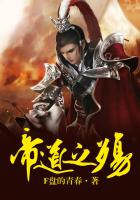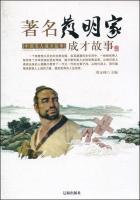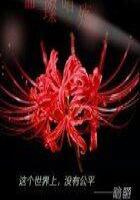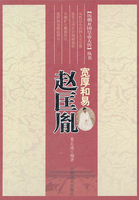"Be silent! No nonsense! Do you blame yourself rather than sing your own praises. And in that vision you may hear the man of God cry: 'Felitzata, go you forth and do that which one who shall meet you may request you to perform!' And, having gone forth, you may find the man of God to be the monk whom we have spoken of."
"A-a-ah!" the woman drawled with an air of being about to say something more.
"Come, fool!"
"You see--"
"Have I, this time, abused you?"
"No, but--"
"I have an idea that the man of God will be holding a crook."
"Of course," assented Felitzata.
Similarly, on another occasion, did I hear Antipa mutter confidentially to his companion:
"The fact that all his sayings are so simple is not a favourable sign. For, you see, they do not harmonise with the affair in its entirety--in such a connection words should be mysterious, and so, able to be interpreted in more than one way, seeing that the more meanings words possess, the more are those words respected and heeded by mankind."
"Why so?" queried Felitzata.
"Why so?" re-echoed Vologonov irritably. "Are we not, then, to respect ANYONE or ANYTHING? Only he is worthy of respect who does not harm his fellows; and of those who do not harm their fellows there are but few. To this point you must pay attention--you must teach him words of variable import, words more abstract, as well as more sonorous."
"But I know no such words."
"I will repeat to you a few, and every night, when he goes to bed, you shall repeat them to HIM. For example: 'Adom ispolneni, pokaites'[Do ye people who are filled with venom repent]. And mark that the exact words of the Church be adhered to. For instance, 'Dushenbitzi, pozhaleite Boga, okayannie,' [Murderers of the soul, accursed ones, repent ye before God.] must be said rather than 'Dushenbitzi, pozhaleite Boga, okayanni,' since the latter, though the shorter form, is also not the correct one.
But perhaps I had better instruct the lad myself."
"Certainly that would be the better plan."
So from that time onwards Vologonov fell to stopping Nilushka in the street, and repeating to him something or another in his kindly fashion. Once he even took him by the hand, and, leading him to his room, and giving him something to cat, said persuasively:
"Say this after me. 'Do not hasten, Oh ye people.' Try if you can say that."
"'A lantern,'" began Nilushka civilly.
"'A lantern?' Yes. Well, go on, and say, 'I am a lantern unto thee--"
"I want to sing, it."
"There is no need for that, though presently you shall sing it.
For the moment your task is to learn the correct speaking of things. So say after me--"
"0 Lo-ord, have mercy!" came in a quiet, thoughtful chant from the idiot. Whereafter he added in the coaxing tone of a child:
"We shall all of us have to die."
"Yes, but come, come! " expostulated Vologonov. " What are you blurting out NOW? That much I know without your telling me--always have I known, little friend, that each of us is hastening towards his death. Yet your want of understanding exceeds what should be."
"Dogs run-"
"Dogs? Now, enough, little fellow."
"Dogs run like chickens. They run here, in the ravine," continued Nilushka in the murmuring accents of a child of three.
"Nevertheless," mused Vologonov, "even that seeming nothing of his may mean something. Yes, there may lie in it a great deal.
Now, say: 'Perdition will arise before him who shall hasten.'"
"No, I want to SING something."
With a splutter Vologonov said:
"Truly you are a difficult subject to deal with!"
And with that he fell to pacing the floor with long, thoughtful strides as the idiot's voice cried in quavering accents:
"O Lo-ord, have me-ercy upon us!"
****************************
Thus the winsome Nilushka proved indispensable to the foul, mean, unhealthy life of the suburb. Of that life he coloured and rounded off the senselessness, the ugliness, the superfluity. He resembled an apple hanging forgotten on a gnarled old worm-eaten tree, whence all the fruit and the leaves have fallen until only the branches wave in the autumn wind. Rather, he resembled a sole-surviving picture in the pages of a ragged, soiled old book which has neither a beginning nor an ending, and therefore can no longer be read, is no longer worth the reading, since now its pages contain nothing intelligible.
And as smiling his gracious smile, the lad's pathetic, legendary figure flitted past the mouldy buts and cracked fences and riotous beds of nettles, there would readily recur to the memory, and succeed one another, visions of some of the finer and more reputable personages of Russian lore--there would file before one's mental vision, in endless sequence, men whose biographies inform us how, in fear for their souls, they left the life of the world, and, hieing them to the forests and the caves, abandoned mankind for the wild things of nature. And at the same time would there recur to one's memory poems concerning the blind and the poor-in particular, the poem concerning Alexei the Man of God, and all the multitude of other fair, but unsubstantial, forms wherein Russia has embodied her sad and terrified soul, her humble and protesting grief. Yet it was a process to depress one almost to the point of distraction.
Once, forgetting that Nilushka was imbecile, I conceived an irrepressible desire to talk with him, and to read him good poetry, and to tell him both of the world's youthful hopes and of my own personal thoughts.
The occasion happened on a day when, as I was sitting on the edge of the ravine, and dangling my legs over the ravine's depths, the lad came floating towards me as though on air. In his hands, with their fingers as slender as a girl's, he was holding a large leaf; and as he gazed at it the smile of his clear blue eyes was, as it were, pervading him from head to foot.
"Whither, Nilushka?" said I.
With a start he raised his head and eyes heavenward. Then timidly he glanced at the blue shadow of the ravine, and extended to me his leaf, over the veins of which there was crawling a ladybird.
"A bukan," he observed.















